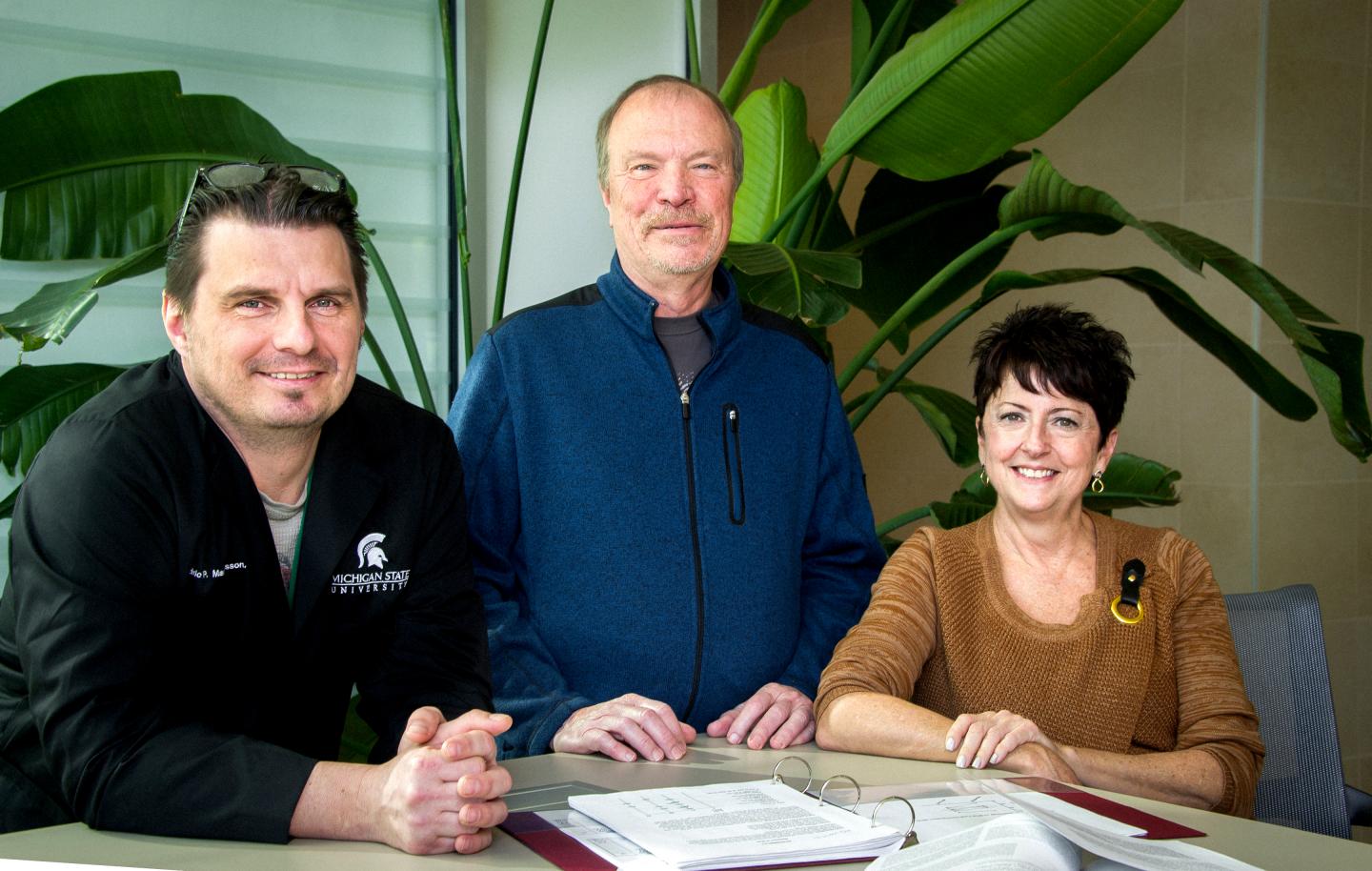
Credit: Michigan State University
EAST LANSING, Mich. — A Michigan State University researcher has received a $2.8 million federal grant to develop a gene therapy that could reduce and possibly eliminate a frustrating side effect of a drug commonly prescribed to Parkinson’s patients.
The research could mean a significant advance for the up to 90 percent of patients who develop dyskinesia, a drug-induced side effect that results in the involuntary and uncontrolled movement of hands, head and other body parts.
The five-year study is funded by the National Institute of Neurological Disorders and Stroke.
Levodopa, a drug prescribed to alleviate tremors, stiffness and other motor symptoms characteristic of Parkinson’s, often causes the condition, and earlier MSU research has shown promising results related to a new gene therapy.
“I’ve been studying ways of dampening dyskinesia for years and I’ve never seen anything this effective,” said Kathy Steece-Collier, who is leading the research and is a professor in the Department of Translational Science and Molecular Medicine in the College of Human Medicine.
The study will focus on brain cells, called “medium spiny neurons,” in the striatum, an area of the brain associated with movement. These neurons have appendages, or dendrites, and each is covered with tiny spines that have receptors that interact with dopamine, a neurochemical necessary for normal motor learning and movements.
In Parkinson’s patients, the level of dopamine declines, and as a result, many of the spines retract, altering the circuit and causing problems with movement.
Steece-Collier said that, although levodopa stimulates the regrowth of spines on the neurons, they are poor replacements for the ones that were originally lost.
“The catch is the new spines appear to not allow neurons to connect normally,” she said. “In effect, you get miswiring, which can result in dyskinesia.”
Preliminary research has identified a calcium channel in brain cells, known as “CaV1.3,” as a potential therapeutic target for alleviating dyskinesia. A certain amount of calcium is necessary for normal functioning, but too much can be bad. The loss of dopamine related to Parkinson’s results in the CaV1.3 channels being overactive, causing too much calcium and leading to retraction of the spines.
Some drugs are available that could block CaV1.3, but getting a large enough dose into the brain is difficult and risks side effects, including cardiovascular.
Fredric Manfredsson, an assistant professor of translational science and molecular medicine, has been assisting Steece-Collier by developing a harmless virus that when injected into the striatum transports a molecule, known as “shRNA,” into neurons and reduces their ability to produce CaV1.3.
Initial results have shown this technique can completely prevent the development of dyskinesia over extended periods of time, even when the dose of levodopa is very high. It also can partially reverse the side effect, something that previously has been difficult to do.
“We’ve never seen such a dramatic effect,” said Tim Collier, a neuroscience professor, who will also assist Steece-Collier in analyzing the study’s data. “This looks almost perfect in its ability to eliminate this behavior.”
According to the researchers, the new grant could lead to human clinical trials in the near future and mean a better quality of life for Parkinson’s patients.
###
Michigan State University has been working to advance the common good in uncommon ways for 160 years. One of the top research universities in the world, MSU focuses its vast resources on creating solutions to some of the world’s most pressing challenges, while providing life-changing opportunities to a diverse and inclusive academic community through more than 200 programs of study in 17 degree-granting colleges.
Media Contact
Sarina Gleason
[email protected]
517-355-9742
Original Source
https:/




